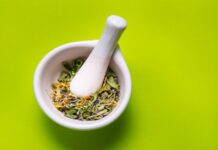Looking for healthy sugar alternatives that do not raise blood sugar? Here are 6 safe and natural sugar substitutes that help satisfy your sweet tooth without affecting insulin levels.
If you are trying to manage your blood sugar or simply reduce your sugar intake, switching to natural sweeteners can make a big difference. Regular sugar causes sudden spikes in blood glucose and insulin levels, which over time may lead to insulin resistance, weight gain, and other metabolic issues. Thankfully, several healthy sugar substitutes can give you the sweetness you crave without the crash. These alternatives not only have a low or zero glycemic index but also come with added health benefits like better gut health and reduced inflammation. From stevia to yacon syrup, here are some of the best sugar substitutes that do not spike insulin and can help you enjoy your favourite foods guilt-free.
6 sugar substitutes for diabetics
Here are the 6 best sugar substitutes that have minimal to zero impact on blood sugar levels:
1. Stevia
Stevia is one of the most well-known low-calorie sugar substitutes, extracted from the leaves of the Stevia rebaudiana plant. Its intense sweetness, far exceeding that of sugar, makes it an excellent option for those looking to manage weight and maintain healthy blood glucose levels, especially for people with diabetes. While it is generally safe, research published in the Avicenna Journal of Phytomedicine highlights that Stevia may potentially affect the delicate balance of the gut microbiome. Therefore, it should be consumed in moderation. Also, many commercial blends are diluted with hidden sugars like dextrose or maltodextrin, which can unexpectedly impact blood sugar. So, make sure you are using pure Stevia.
2. Monk fruit
Derived from the small, round monk fruit, this sweetener boasts zero calories and zero sugar. It is considered an ideal alternative for diabetics and those managing high blood sugar because it does not raise blood glucose levels, as per the US Food and Drug Administration (FDA). “The sweet compounds in monk fruit are called mogrosides, which are not metabolised like sugar. Beyond its sweetness, mogrosides also function as powerful antioxidant compounds and may help reduce inflammation and oxidative stress, supporting overall metabolic health,” explains Nutritionist Karishmma Chawla.
3. Allulose
Allulose, also known as D-Psicose, is a rare simple sugar naturally found in small quantities in foods like figs, raisins, jackfruit, and wheat. Despite having a chemical structure similar to fructose, Allulose is metabolised very differently. “While refined sugar contains about 50 calories per three teaspoons, the same amount of allulose accounts for only 5 calories. This remarkably low calorie count is because allulose is not metabolised by the body. This means it does not raise blood sugar or insulin levels,” says Chawla. Research even suggests that allulose may help lower blood glucose and protect pancreatic insulin-producing cells, reducing the risk of type 2 diabetes. For those looking to lose weight or manage diabetes, allulose is one of the best sugar alternatives.

4. Erythritol
Erythritol is a sugar alcohol, naturally found in some fruits and fermented foods. It offers about 70 percent of the sweetness of sugar but almost no calories. A study in the Diabetes and Metabolism Journal found that erythritol does not affect blood sugar, insulin, or cholesterol levels, making it a safe option for diabetics. It is also gentle on the digestive system compared to other sugar alcohols and can be used in baking. Many people combine erythritol with stevia to balance sweetness and reduce the cooling aftertaste. If you are craving sugar-free desserts, erythritol is one of the best sugar substitutes to start with.
5. Xylitol
Xylitol is another sugar alcohol that has a similar sweetness to sugar. It does not raise blood sugar or insulin levels, making it suitable for diabetics. Besides being a great low-glycemic sweetener, xylitol supports oral health. It helps prevent cavities and reduces dental decay by starving harmful bacteria in the mouth. However, like other sugar alcohols, excessive consumption can cause digestive issues like bloating or diarrhea. So, moderation is key. And importantly, xylitol is toxic to dogs, so pet owners should store it safely. When used wisely, it is both tooth-friendly and blood sugar-friendly
6. Yacon syrup
Extracted from the tuberous root of the Yacon plant, Yacon syrup is considered a healthy sugar alternative, containing about one-third of the calories of regular sugar. The syrup is rich in fructooligosaccharides (FOS), a type of prebiotic fiber that feeds healthy gut bacteria and supports digestion. According to the Journal of Medicinal Food, yacon syrup may help lower blood glucose, reduce body weight, and improve overall gut health. It also promotes bowel movements and may even protect against colon cancer. Because of its mild caramel-like taste, it is a delicious alternative for drizzling on pancakes, oats, or yoghurt.
So, give these sugar substitutes a try to manage your diabetes!





